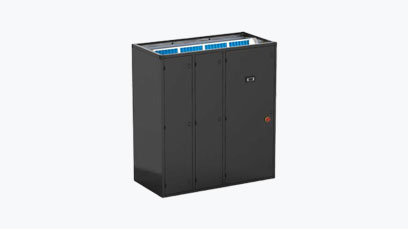Precision Cooling System

A precision cooling system, also known as precision air conditioning or close control air conditioning, is a specialized HVAC system designed to provide precise and tightly controlled cooling and humidity conditions for sensitive equipment and critical environments. It is commonly used in data centers, server rooms, telecommunications facilities, medical labs, cleanrooms, and other spaces where maintaining stable and optimal conditions is essential.
Here are the key features and components of a precision cooling system
Temperature Control
Precision cooling systems offer precise temperature control, often within narrow tolerances, to ensure the optimal operating conditions for sensitive equipment. The temperature is typically maintained within a range of ±0.5 to ±1 degree Celsius.
Humidity Control
These systems also incorporate humidity control mechanisms to maintain the desired humidity levels, which are critical for the reliable operation of equipment and the prevention of electrostatic discharge and moisture-related issues. Humidity is usually controlled within a range of 40% to 60% relative humidity.
High Airflow and Air Distribution
Precision cooling units are equipped with high-capacity fans and advanced air distribution mechanisms to ensure proper air circulation and temperature uniformity throughout the room or equipment area. This helps eliminate hotspots and maintain consistent cooling across space.
Redundancy and Fault Tolerance
Precision cooling systems often feature redundant components, such as multiple compressors, fans, and controllers, to ensure reliability and minimize downtime in the event of a component failure. Redundancy is critical in environments where uninterrupted cooling is essential.
Environmental Monitoring and Alarms
These systems include sophisticated monitoring capabilities to continuously measure temperature, humidity, airflow, and other parameters. In case of any deviations from the set parameters, the system triggers alarms and alerts operators to take appropriate action.
Air Filtration
Precision cooling systems typically incorporate advanced air filtration systems to remove airborne particles, dust, and contaminants from the supply air, ensuring a clean environment for sensitive equipment and preventing damage.
Energy Efficiency
Many precision cooling systems are designed with energy-efficient features, such as variable speed drives for fans and compressors, intelligent controls, and economizer modes to optimize energy consumption while maintaining precise conditions.
